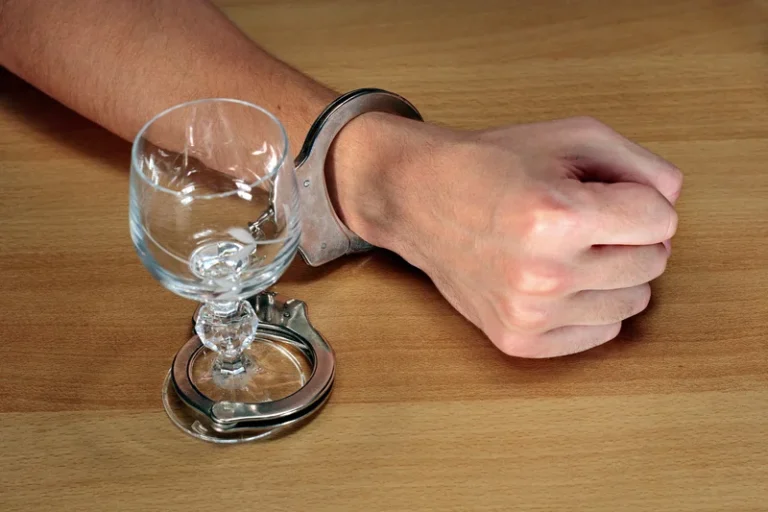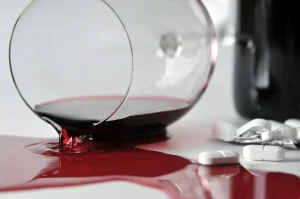10 Alcohol Withdrawal Symptoms to Know When You Stop Drinking

Alcohol withdrawal syndrome is a clinical diagnosis that relies heavily on the history and physical, which is also used to gauge disease severity. When in doubt, clinicians can refer to the DMS-V criteria for diagnosis. While you may be able to manage mild symptoms on your own or with the support of family and friends based on your doctor’s recommendations, more severe symptoms usually require medical treatment. The symptoms most commonly begin between 6 to 24 hours after your last drink. Still, some symptoms — often more severe — can set in after 2 to 3 days.

What are the symptoms of alcohol withdrawal?
It’s best to be in a calm and controlled environment to reduce the risk of symptoms progressing toward hallucinations. If your symptoms are mild (or perhaps even moderate), your doctor may suggest that you reach out to a friend or family member to help you monitor your symptoms at home. Seizures often occur in the early stages of withdrawal, and they may happen in the absence of other AWS. More than 90% of acute seizures occur in the first 48 hours after your last drink. In some cases, AWS can be a medical emergency and — if complications arise — potentially life threatening. Alcohol withdrawal is a natural physical response your body goes through when trying to break an alcohol dependence.

What causes alcohol withdrawal syndrome?

Symptoms can become severe, and it can be difficult to predict which people will develop life-threatening symptoms. If a person has alcohol use disorder, their body gets used to a certain amount of alcohol in their system. Too much alcohol can irritate the stomach lining, cause dehydration, and lead to an inflammatory response in the body.
SEVERE OR COMPLICATED SYMPTOMS (CIWA-AR SCORE OF 19 OR MORE)
Other drugs a healthcare provider might prescribe include anxiolytics , vitamins, and suboxone. The most dangerous form of alcohol withdrawal occurs in about 1 out of every 20 people who have withdrawal symptoms. Symptoms of alcohol withdrawal can occur after a person suddenly stops drinking or suddenly strongly reduces drinking after prolonged and heavy exposure to alcohol.
- To learn more about when you may need help for alcohol misuse, visit our informational page on helping someone with an alcohol use disorder or take our alcohol misuse self-assessment.
- It may also reduce the activity of glutamate, an amino acid that has been shown to play a role in withdrawal.
- If you’re experiencing alcohol withdrawal, your body might be going through an array of uncomfortable physical and mental changes.
- These may still be mild, or the existing symptoms might increase in severity.
Lifestyle and home remedies
Alcohol withdrawal syndrome poses a significant clinical challenge arising from the spectrum of AUD—a prevalent condition affecting a substantial portion of the United States population. Alcohol withdrawal syndrome is a clinical condition that may arise following the cessation or reduction of regular, heavy alcohol consumption. Given its spectrum of manifestations from mild to severe and potentially fatal, all healthcare team members must recognize the signs and symptoms of this condition. Timely assessment and accurate treatment are vital to preventing disease progression. Comprehensive patient care entails acute management and outpatient support in the hospital setting. In the inpatient setting, nurses perform frequent assessments that inform the treatment plan.
Alcohol Withdrawal Stages and Severity

Consequently, the interprofessional healthcare team must ascertain the most suitable setting based on a patient’s symptoms. The symptoms of alcohol withdrawal delirium include withdrawal seizures that can occur between 8 and 28 hours after your last drink. Signs of an impending seizure include tremors, increased blood pressure, overactive reflexes, and high temperature and pulse.
Deterrence and Patient Education
- It also provides an overview of the alcohol withdrawal timeline process and when to discuss your drinking with your healthcare provider.
- Signs of an impending seizure include tremors, increased blood pressure, overactive reflexes, and high temperature and pulse.
- Roughly every second person living with an alcohol use disorder will develop symptoms due to alcohol withdrawal when drinking is strongly reduced or stopped.
